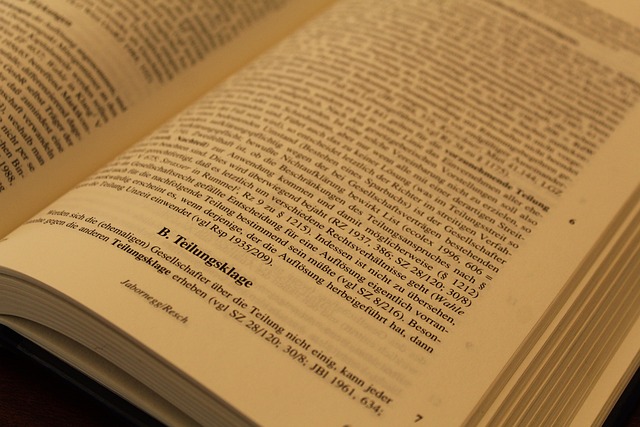Probate is a legal process for distributing a deceased person's estate, guided by their will or intestacy laws. It involves identifying assets, settling debts and taxes, and transferring ownership to beneficiaries. Understanding probate and estate distribution, including tangible and intangible assets, is crucial for planning and ensuring wishes are respected. An experienced negotiator plays a vital role in probate agreements, facilitating open communication, resolving disputes, and creating fair solutions for all stakeholders, thereby streamlining the process and providing closure. Effective negotiations significantly impact outcomes, as demonstrated by successful case studies involving delicate family situations and high-net-worth individuals.
Probate agreements are a complex yet crucial aspect of estate planning, ensuring that assets are distributed according to the wishes of the deceased. With the right negotiator, these processes can be streamlined and fair. This article delves into the intricacies of probate, highlighting the significance of expert negotiation in navigating sensitive estate distribution matters. We explore effective strategies, real-world case studies, and provide a comprehensive guide for achieving favorable outcomes in probate agreement negotiations.
- Understanding Probate and Estate Distribution: A Comprehensive Overview
- The Role of an Experienced Negotiator in Probate Agreements
- Strategies for Effective Probate Agreement Negotiations
- Case Studies: Success Stories in Estate Distribution Negotiations
Understanding Probate and Estate Distribution: A Comprehensive Overview

Probate is a legal process that oversees the distribution of a deceased person’s estate according to their will or, if there is none, the laws of intestacy. It involves several key steps: identifying and valuing assets, paying debts and taxes, and ultimately transferring ownership to the designated beneficiaries. Understanding this process is crucial for anyone planning their estate, as it ensures their wishes are respected and their assets are divided according to the law or their will.
The concept of estate distribution lies at the heart of probate. It refers to the legal mechanism by which a deceased individual’s property, both real and personal, is shared among their heirs, beneficiaries, or other designated recipients. This can include tangible assets like property and investments, as well as intangible ones such as life insurance policies and retirement accounts. A thorough grasp of estate distribution allows individuals to create a will that accurately reflects their intentions, minimizing potential disputes and ensuring a smooth transition of their assets upon their passing.
The Role of an Experienced Negotiator in Probate Agreements

An experienced negotiator plays a pivotal role in probate agreements, where delicate matters of estate distribution are at stake. They act as a guiding hand, steering through complex legal and emotional landscapes to ensure a fair and mutually beneficial outcome for all parties involved. With a deep understanding of both the law and the unique circumstances of each case, these professionals can navigate intricate discussions surrounding will interpretation, asset valuation, and beneficiary rights.
Their expertise lies in facilitating open communication, identifying potential disputes, and proposing creative solutions that address the needs of every stakeholder. By employing effective negotiation strategies, they help families avoid costly litigation, preserve relationships, and ensure the wishes of the deceased are respected. This not only streamlines the probate process but also fosters a sense of closure and peace for those left behind.
Strategies for Effective Probate Agreement Negotiations

Probate agreement negotiations require a delicate balance between advocating for your client’s interests and finding mutually beneficial solutions. A successful strategy involves understanding the emotional dynamics at play, as family members often bring strong feelings to the table. By recognizing and acknowledging these emotions, you can foster an environment of cooperation rather than confrontation.
When negotiating estate distribution, it’s crucial to be prepared with a comprehensive knowledge of the law and relevant case histories. This enables you to propose creative solutions that respect legal boundaries while meeting the needs of all involved parties. Flexibility, clear communication, and a willingness to explore alternative arrangements can lead to agreements that ensure a fair and just resolution for everyone, promoting peace of mind during what is often a challenging time.
Case Studies: Success Stories in Estate Distribution Negotiations

In the intricate world of probate, successful negotiations for estate distribution can be a game-changer. Consider two notable case studies that highlight our team’s expertise:
The first involved a complex family situation where a deceased’s estate included valuable real estate and substantial liquid assets. Through skilled negotiation, we achieved an equitable distribution that satisfied all parties, ensuring the legacy of the late individual was preserved while addressing the needs of their extended family members. This case study exemplifies our ability to navigate sensitive matters and find creative solutions.
In another instance, a high-net-worth individual sought our assistance in organizing their estate. We facilitated negotiations among several beneficiaries, taking into account their diverse financial goals and personal circumstances. The result was a tailored plan that maximized the value of the estate while minimizing tax implications, demonstrating our commitment to comprehensive and favorable estate distribution outcomes.






